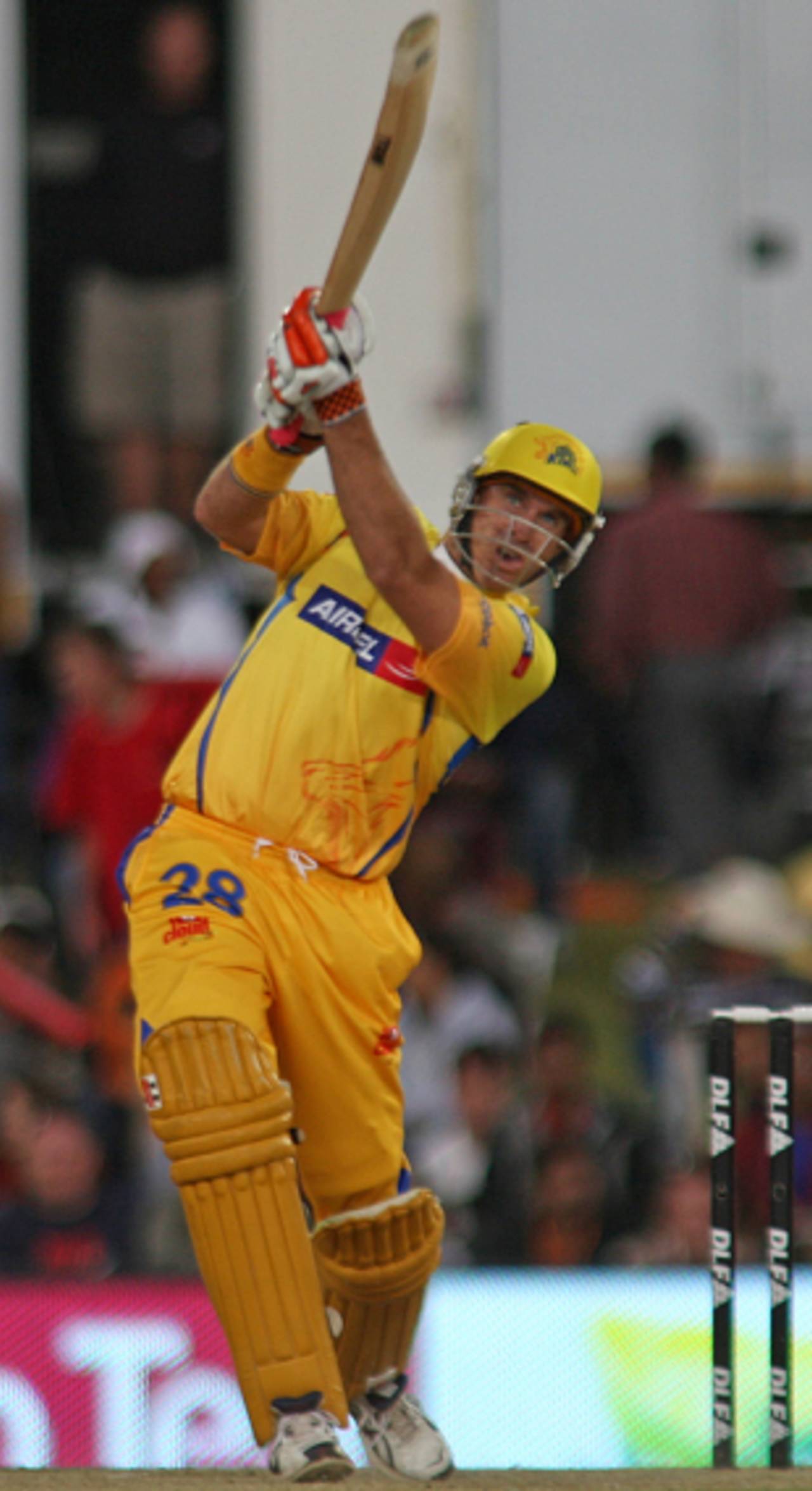Gladwell and cricket
Tipping points in Twenty20
Tishani Doshi
11-May-2009

Matthew Hayden or Maven Hayden, he always has something new to present to us • Associated Press
Something I've been hearing from the commentary is the phrase "the turning point". From what I can gather, the turning point is that moment in the match when things have the potential to gain momentum or degenerate fast (depending on which team you're on!). It could be anything from a missed catch, two batsmen settling in for a solid partnership, or a bowler taking a few wickets in quick succession. In some of the matches we've seen this tournament, the turning point comes in the last over of the match, and winning or losing hinges on those six balls. But things can turn at any stage.
In yesterday's match between the Daredevils and the Knight Riders, the turning point came right at the start with Ashish Nehra's dismissal of Brendon McCullum. McCullum looked set to finally prove his match-winning ways, and then unluckily for him, the umpire made a bad lbw call. Who knows what might have happened if the umpire had made the right call? But as things stood, McCullum's shaky start and the Knight Riders' contagious we're-unlucky-as-hell attitude managed to contaminate the rest of the batting order, and the match went kaput. In the previous game between the Royal Challengers Bangalore and the Mumbai Indians, Rahul Dravid's run-out could be identified as the point at which Bangalore's chance for victory was, well, challenged.
With all this talk of turning points, I couldn't help but think of Malcolm Gladwell's best-selling book, The Tipping Point. The "tipping point" is a phrase that Gladwell coined to describe the point at which the momentum for change becomes unstoppable. It's a moment of critical mass, a threshold, a boiling point. Gladwell's aim in writing this book was to present a new way of understanding why change so often happens as quickly and unexpectedly as it does. He believes that ideas, products, people and messages behave a bit like outbreaks of infectious diseases, and that behaviour (including winning and losing) can be transmitted from one person to another as easily as the flu. His book is all about studying these "social epidemics" around us, and presenting us with ways of decoding the world. I'm sure Gladwell never dreamed that his theories could be used to expound the finer points of Twenty20, but here goes:
In Gladwell's universe the key players who act as "agents of change" and can orchestrate social epidemics are Connectors, Mavens and Salesmen. Connectors are people who link us up with the world; they have a huge social network and a special talent of bringing things together. The top Connector of the tournament has got to be Lalit Modi, for believing and propagating his own hype - that the IPL is going to change the game of cricket forever.
Mavens are information specialists - people we rely upon to connect us with new information and who know how to share it with others. In the IPL, the commentators, coaches, and pitch doctors could be placed under this head. However, because it's been a long time since they actually told us anything new, I'm leaning more toward the tournament veterans like Matthew Hayden, Sanath Jayasuriya and Anil Kumble, who, no matter how long they've been around, still present us with new ways of seeing.
And finally, the Salesmen. These are the persuaders: charismatic people with powerful negotiation skills. They tend to have an indefinable trait that goes beyond what they say, which makes others tend to believe them. Top IPL Salesmen would include captains like Shane Warne, MS Dhoni, Virender Sehwag and Adam Gilchrist, who lead from the front, and in their own fashion find verbal and non-verbal ways to motivate their team.
The tipping point is a fascinating concept, and can be applied to the world at large and to our own personal lives. It could be a simple thing, like "If I don't consume a few grams of sugar in the next five minutes, I'm going to faint," or more serious, long-term, considerations, like "If I don't get out of this dead-end job/relationship/city/fill in the blank," I'm going to do myself some serious damage. The tricky thing is that in life, just as in the game of cricket, we rarely recognise that exact moment when change is embraced until much later.
Later, of course, there's always the luxury of knowledge and "knowing". Everyone "knew," for instance, that Sachin Tendulkar's decision to drop Sanath Jayasuriya in the match against the Delhi Daredevils (which yielded the Mumbai Indians their lowest score in the tournament) was a bad move. You don't drop a seasoned player like Jayasuriya, was the general consensus, because someone like him can win matches for you. Of course, if Luke Ronchi had had actually come up with the goods, everyone would have been singing a different song. How innovative and daring of Tendulkar to make such a difficult decision in the interest of the team, they would have said.
I guess the one point of truth in all of this, whether tipping or turning, is that it's only in hindsight that our vision is Twenty20.
Tishani Doshi is a writer and dancer based in Chennai